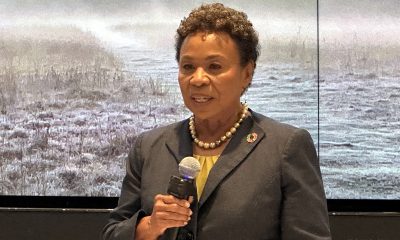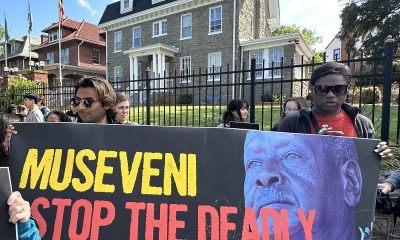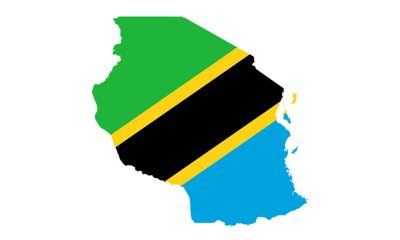Africa
Tanzanian man convicted of violating country’s sodomy law, sentenced to 30 years in prison
Muharami Hassan Nayonga arrested on April 13
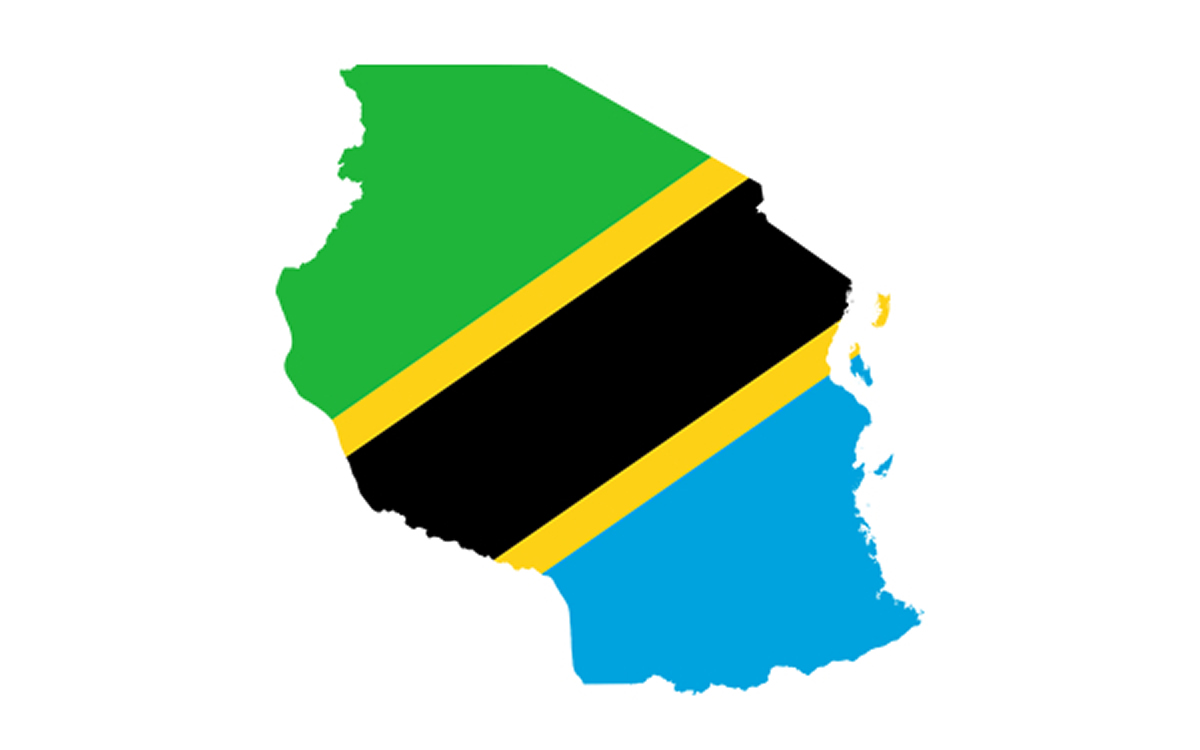
A Tanzanian man was last month sentenced to 30 years in prison after a court convicted him of violating the country’s sodomy law.
According to LGBT VOICE Tanzania, an LGBTQ and intersex rights organization, the Kilwa District Court sentenced Muharami Hassan Nayonga to 30 years in prison after it convicted him of violating Sections 154 and 157 of the country’s Penal Code that criminalize so-called unnatural offenses and “indecent practices between males.”
LGBT VOICE Tanzania said Nayonga was a security guard who lived in Masoko Ward. He was arrested on April 13 “after he used his phone to persuade a young man known as Zalafi Selemani to be intimate with him.”
“After the arrest, Muharami was examined by health professionals who found that he had engaged and engages in unnatural sex,” said LGBT VOICE Tanzania. “He was then brought to court and confessed his crimes where he was sentenced to 30 years in prison by the Resident Magistrate of the Court, Carolina Mtui, under case number 27 of 2023.”
LGBT VOICE Tanzania accused the country’s government of violating Nayonga’s human rights.
“Using Sections 154 and 157 of the Penal Code to persecute LGBTQIA people is a violation of human rights and a violation of the Constitution of the United Republic of Tanzania,” said LGBT VOICE Tanzania.
There have been consistent reports of discrimination and violence against LGBTQ and intersex Tanzanians in recent years. These include murder, assault, harassment and denial of basic rights and services.
The Health Ministry in 2016 prohibited community-based organizations from conducting outreach on HIV prevention to men who have sex with men and other key populations, based on the pretext that such organizations are engaged in the promotion of homosexuality. The ministry also closed drop-in centers that provided HIV testing and other services to key populations. International organizations ran many of these centers, and the government accused them of promoting homosexuality.
The ministry also banned the distribution of lubricant.
A crackdown against LGBTQ and intersex Tanzanians has been underway since 2018; with reports of raids, mass arrests, arbitrary detention and forced anal examinations.
According to Daniel Marari, a human rights lawyer and researcher, most Tanzanians strongly oppose LGBTQ and intersex rights on the assumption that non-traditional sexual orientation or gender identity is ungodly and immoral.
“While acknowledging the presence of LGBT people in the Tanzanian society, many anti-LGBT actors find it easy to demonize the issue as un-African, and a western invention as there is no such thing as a right to homosexuality. Those who are quick to condemn homosexuality hardly bother to reflect on the scientific aspects of sexual orientation or gender identity,” said Marari.
Marari also stressed LGBTQ and intersex Tanzanians are not asking for any special rights but basic human rights like every other citizen.
“What LGBT people are asking for is the fulfillment of the Constitutional promise of equality and there is nothing specifically western about that. Tanzania has ratified international and regional treaties guaranteeing basic rights including the right of minorities and vulnerable groups and it is time it lives up to its promises,” said Marari. “There is no doubt that the criminalization of private consensual homosexual acts between adults affects the private lives of LGBT people as they cannot express their sexual or gender identity without being liable to prosecution.”
“Even where there is justification to restrict homosexual relationships so as to protect special groups like children or other vulnerable persons from sexual abuse, just as heterosexual relationships can be restricted on the same grounds, that argument would not justify all-inclusive criminal sanctions where persons involved are consenting adults,” added Marari.
Consensual same-sex sexual relations remain prohibited in Tanzania, and anyone convicted under the country’s sodomy law faces up to life in prison.
Daniel Itai is the Washington Blade’s Africa Correspondent.
Africa
Upcoming Ugandan Census will not count intersex people
Advocacy group report documents rampant discrimination, marginalization

Uganda’s national Census next month will not count intersex people.
The revelation about the exclusion of intersex Ugandans in the 9-day Census exercise that will begin on May 10 has been confirmed to the Washington Blade by the head of Uganda’s Bureau of Statistics.
UBOS Executive Director Chris Mukiza in response to the Blade’s questions on the issue said the agency has “no business with intersex.”
Their counting could have made Uganda the second African country and the third globally after Australia and Kenya to collect an intersex person’s data in a Census.
Kenya’s 2019 Census determined there were more than 1,500 intersex people in the country.
Uganda had a population of 34.8 million, according to the country’s last Census that took place in 2014.
Intersex people in Uganda are among marginalized groups, subject to stigma and discrimination. The government has yet to recognize them as the third sex and consider them among other minority groups, such as people with disabilities, who enjoy special treatment.
Intersex people cannot be exclusively categorized as male or female for having a biological congenital condition with unique sex characteristics due to inherent and mixed anatomical, hormonal, gonadal, or chromosomal patterns that could be apparent before, at birth, in childhood, puberty, or adulthood.
Mukiza’s position of excluding intersex people in the Census, however, comes amid the prime minister’s office’s demands for inclusivity and equality for all the population. (The Constitutional Court on April 3 refused to “nullify the Anti-Homosexuality Act in its totality.”)
“We recognize that much work remains to be done particularly in addressing the needs of the marginalized and vulnerable communities, promoting inclusive economic growth, and combating climate change,” said Dunstan Balaba, the permanent secretary in the prime minister’s office.
Balaba spoke on April 18 during the National Population and Housing Census prayer breakfast meeting the UBOS convened. Religious leaders and other stakeholders attended it.
President Yoweri Museveni has noted that data from the country’s sixth national Census will be crucial towards achieving the nation’s Vision 2040 and help the government, non-governmental organizations, and donors in providing services to the diverse population.
“It will also provide the basis for planning the provision of social services such as education, health, and transport, among others at the national and local level,” Museveni said as he urged citizens to fully support the Census and provide accurate information.
Uganda has an intersex rights organization, “Support Initiative for People with Atypical Sex Development (SIPD),” which activist Julius Kaggwa founded in 2008 with the support of groups that advocate for children, women, and other marginalized populations.
Some of SIPD’s work as a non-profit, grassroots organization includes community outreach and engagement, sharing reliable information with the society for the protection of intersex people’s rights, and championing the need for organized medical and psychological support.
The organization, through its numerous reports, has decried human rights violations against intersex people that include surgery without consent, discrimination in homes, schools and medical centers, parents abandoning intersex children, and stigma due to lack of legal protection by the government.
Uganda’s Registration of Births and Deaths Act allows a parent or guardian of a child under the age of 21 to change the name or sex at the local registration office. The SIPD, however, maintains this law is discriminatory to intersex people over 21 who want to change their sex characteristics, and want parliament to repeal it.
The intersex rights organization wants the Health Ministry to establish a central registry to register intersex children after they’re born in order to receive support in terms of healthcare, social and legal by the government and other stakeholders as they grow up.
SIPD particularly wants the government to enact a policy that would allow a gender-neutral marker on birth certificates for intersex children to ease any change of sex in the future. The organization also wants the government, through the Education Ministry, to adopt a curriculum that also considers intersex issues in schools and creates a friendly environment for intersex children to learn and graduate like their non-intersex peers.
These demands follow SIPD’s findings that disclosed many intersex children were dropping out of school because of the stigma and discrimination they suffered. The organization has further called on the public-funded Uganda Human Rights Commission to live up to its constitutional mandates of defending human rights by leading the promotion and protection of the rights of intersex people across the country.
SIPD has also challenged religious leaders, who play a key role in Ugandan society and are influential at the local and national level, to promote acceptance of intersex people and to end discrimination against them.
Africa
Ugandan activists appeal ruling that upheld Anti-Homosexuality Act
Country’s Constitutional Court refused to ‘nullify’ law

Twenty-two LGBTQ activists in Uganda have appealed this month’s ruling that upheld the country’s Anti-Homosexuality Act.
The Constitutional Court on April 3 refused to “nullify the Anti-Homosexuality Act in its totality.”
President Yoweri Museveni last May signed the law, which contains a death penalty provision for “aggravated homosexuality.”
The U.S. subsequently imposed visa restrictions on Ugandan officials and removed the country from a program that allows sub-Saharan African countries to trade duty-free with the U.S. The World Bank Group also announced the suspension of new loans to Uganda.
Media reports indicate Sexual Minorities Uganda Executive Director Frank Mugisha and Jacqueline Kasha Nabagesara are among the activists who filed the appeal.
Africa
Congolese lawmaker introduces anti-homosexuality bill
Constant Mutamba’s measure seen as distraction from country’s problems
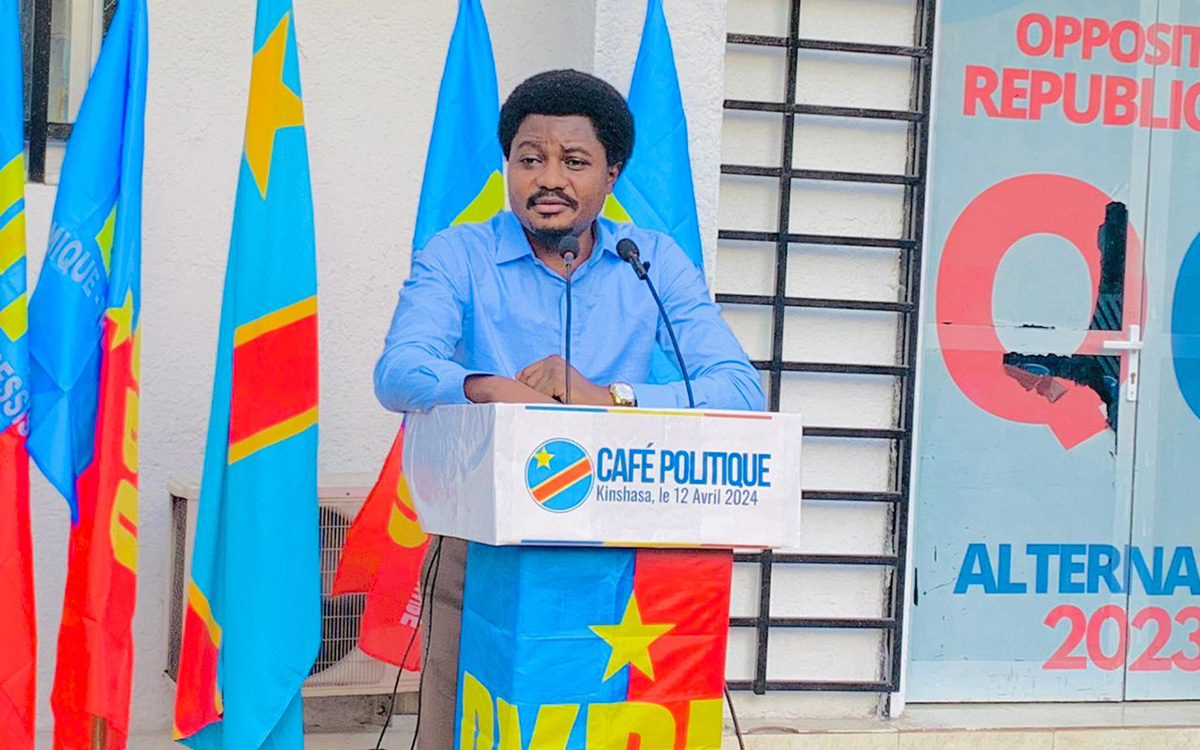
A member of the Democratic Republic of Congo’s National Assembly who is a leader of the country’s opposition party has introduced a bill that would criminalize LGBTQ people.
Part of the bill that Constant Mutamba, leader of the Dynamic Progressive Revolutionary Opposition platform, has put forth states anyone who “commits a homosexual act (including acts and gestures) will be liable to a 5- or 10-year prison sentence.”
The country in recent years has seen government leaders and civic society target the community with anti-LGBTQ sentiments.
The Superior Council for Audiovisual and Communication, Media Regulatory Authority last June cautioned the media against showing LGBTQ-specific conversations. Several activists have criticized Mutamba’s bill, saying it seeks to move attention away from governance, service delivery and other pertinent issues in the country.
Sirius Tekasala, a human rights activist, said a person’s sexual orientation does not impact issues of governance.
“The proposed bill does not go in the direction of improving the socio-economic life of the Congolese people,” said Tekasala. “It’s not homosexuals who prevent you from doing your job well or from breathing. This is a violation of human rights.”
Mbuela Mbadu Dieudonné, a social analyst and trade unionist, said the bill is just a way of deviating people from the pertinent issues.
“He should suggest how to get the Congolese people out of this precariousness of life which is growing on a daily basis,” said Dieudonné. “When we don’t know the real problems of the Congolese people, he sets himself up as the great director of scenes to distract the Congolese people.”
Many Congolese, however, seem to support the bill and have applauded Mutamba for drafting it.
This is not the first time that such kind of a bill has been drafted.
An anti-homosexuality bill introduced in 2010 would have sentenced people who engage in consensual same-sex sexual relations to between three and five years in prison. The measure, however, did not become law.
Mutamba’s bill, however, may pass with Uganda’s Anti-Homosexuality Act in effect. The country’s Constitutional Court earlier this month upheld it. Burundi, Tanzania and other neighboring countries are also considering similar measures.
Many Congolese people view LGBTQ rights as a Western phenomenon that disregards their religious and cultural beliefs. LGBTQ Congolese are among those who have fled the country and sought refuge in the Kakuma refugee camp in Kenya and other places.
Consensual same-sex sexual relations are not criminalized in the Democratic Republic of Congo, but Congolese law does not recognize same-sex marriages.
-

 District of Columbia5 days ago
District of Columbia5 days agoNew D.C. LGBTQ+ bar Crush set to open April 19
-

 South America3 days ago
South America3 days agoDaniel Zamudio murderer’s parole request denied
-

 Maryland4 days ago
Maryland4 days agoMontgomery County police chief discusses arrest of trans student charged with planned school shooting
-

 Politics5 days ago
Politics5 days agoCourt records raise concerns about right-wing TikTok investor’s influence

